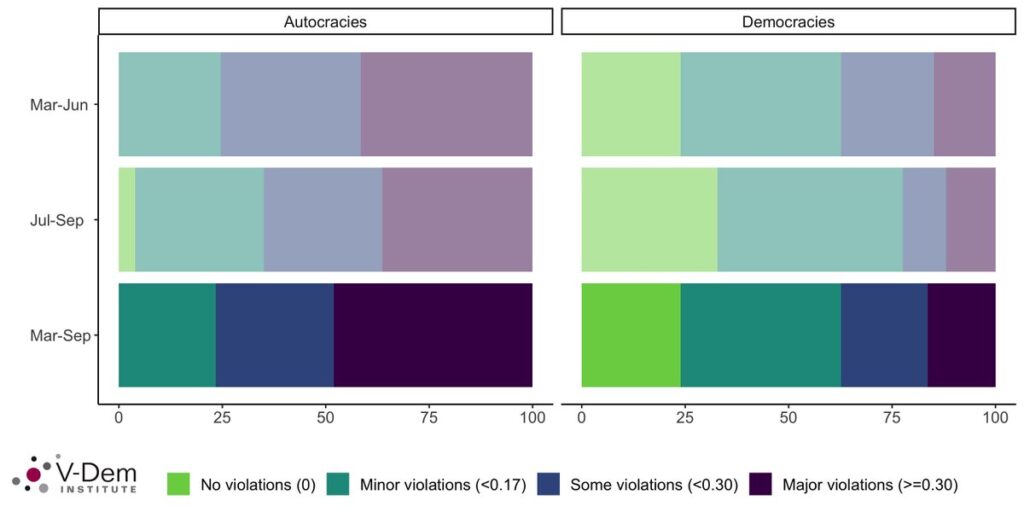
Excessive use of emergency powers and limitations of media freedoms have raised concerns
that Covid-19 is infecting democracy itself, a new analysis observes.
How do government responses to Covid-19 violate democratic standards? How do such violations relate to the countries’ success in limiting the Covid-19 death tolls? the Varieties of Democracy project asks.
V-Dem research, drawing on a dataset covering 143 countries from March 2020 onward, demonstrates that violating democratic standards does not secure better Covid-19 outcomes. The data track seven forms of violations of democratic standards for Covid-19 emergency measures: discriminatory measures, derogation of non-derogable rights, abusive enforcement, no time limit on emergency measures, disproportionate limitations on the role of the legislature, official disinformation campaigns, and restrictions on media freedoms.
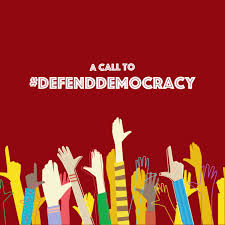 The analysis echoes concerns raised in a recent Freedom House report – Democracy Under Lockdown – and in an open letter which asserted that the pandemic posed serious threats to democracy. “A Call to Defend Democracy,” an Open Letter initiated by the Stockholm-based International IDEA and the US-based National Endowment for Democracy, was signed by 73 pro-democracy institutions as well as a roll call of global political and civic leaders, including 13 Nobel Laureates and 62 former heads of state and government.
The analysis echoes concerns raised in a recent Freedom House report – Democracy Under Lockdown – and in an open letter which asserted that the pandemic posed serious threats to democracy. “A Call to Defend Democracy,” an Open Letter initiated by the Stockholm-based International IDEA and the US-based National Endowment for Democracy, was signed by 73 pro-democracy institutions as well as a roll call of global political and civic leaders, including 13 Nobel Laureates and 62 former heads of state and government.
Violations of democratic standards persist in 65 countries, most of which were autocratic before the pandemic, but the situation has improved for almost a quarter of the countries compared to Mar-Jun. The latest data provides a comprehensive overview of the extent to which governments have violated democratic standards in their response to Covid-19, V-Dem adds:
Using a regression analysis, we find no relationship between violations of democratic standards for emergency measures and Covid-19 death rates. Thus, violations of democratic standards during the Covid-19 pandemic cannot be justified by the achievement of better public health outcomes. Rather, such crisis-driven violations need to be carefully observed as they could signal autocratization. RTWT
@vdeminstitute‘s new Pandemic Backsliding data shows:
• The situation has improved for almost 1/4 of the countries compared to Mar-Jun
• Violations of democratic standards persist in 65 countries, most of which were autocratic before the pandemic https://t.co/50M6LQRsIg pic.twitter.com/bH8yYtjRwu— V-Dem Institute (@vdeminstitute) October 5, 2020
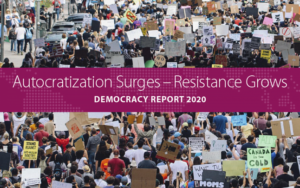 The Pandemic Democratic Violations Index (PanDem) captures the extent to which state responses to Covid-19 violate democratic standards for emergency responses. The Pandemic Backsliding Index (PanBack) reflects the extent to which such responses pose a risk to the overall quality of democracy within the country. Combined, these two indices provide a snapshot of how emergency responses to Covid-19 may be affecting the quality of democracy within the country. They are not intended to estimate the level of democracy, which is instead captured using the V-Dem Liberal Democracy Index (LDI) in 2019.
The Pandemic Democratic Violations Index (PanDem) captures the extent to which state responses to Covid-19 violate democratic standards for emergency responses. The Pandemic Backsliding Index (PanBack) reflects the extent to which such responses pose a risk to the overall quality of democracy within the country. Combined, these two indices provide a snapshot of how emergency responses to Covid-19 may be affecting the quality of democracy within the country. They are not intended to estimate the level of democracy, which is instead captured using the V-Dem Liberal Democracy Index (LDI) in 2019.
COVID-19 and Narrative Competition (HT: Ryan Arick from the NED’s International Forum for Democratic Studies).
Although some experts speculated that the pandemic would prompt Vladimir Putin to soften his aggressive approach to foreign policy in Europe, Moscow has continued its malign activities in the region, Carnegie reports. Putin’s support for Alexander Lukashenko in the wake of Belarus’ contested election and the attempted assassination of Alexei Navalny have contributed to further tension between Russia and countries such as Germany, France, and the United Kingdom.
Beijing has strived to exert influence over U.N. bodies to shape global regulations and norms in its favor, adds The Wall Street Journal. At the U.N. General Assembly last month, Xi Jinping stated that systems of international governance must adapt to shifting political and economic trends, pointing to a rise in China’s stature in the international context as a result of the pandemic
Authoritarian Political Reactions and Crackdowns
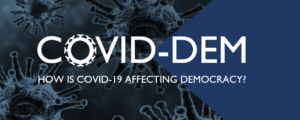 Rwanda has instituted one of Africa’s most stringent responses to the pandemic, which critics call excessive and an infringement upon human rights, The WSJ adds. Over seventy thousand people have been arrested for violating COVID-19 restrictions, with reports of police brutality and sexual violence against individuals in custody.
Rwanda has instituted one of Africa’s most stringent responses to the pandemic, which critics call excessive and an infringement upon human rights, The WSJ adds. Over seventy thousand people have been arrested for violating COVID-19 restrictions, with reports of police brutality and sexual violence against individuals in custody.
Although Uzbekistan’s president, Shavkat Mirziyoyev, initially implemented a rapid response to the pandemic, an August surge nevertheless has overwhelmed the country’s healthcare system and critics have charged that the distribution of financial assistance lacked transparency, The Diplomat reports.
More than one hundred protests have broken out around Venezuela over a lack of public services and severe fuel shortages, notes US News. Strict quarantine measures exacerbated economic challenges in a country already plagued with government mismanagement and corruption, contributing to domestic unrest and dissatisfaction with Maduro’s leadership.
Implications for Technological Governance
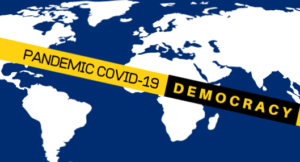 As much of the world begins to reconsider its relationship with PRC-sourced technology, government officials in Cambodia are planning to construct a “national internet gateway” experts say would resemble China’s “Great Firewall,” CodaStory reports. Cambodian Prime Minister Hun Sen has used the COVID-19 pandemic as cover to continue a long-running crackdown on government critics.
As much of the world begins to reconsider its relationship with PRC-sourced technology, government officials in Cambodia are planning to construct a “national internet gateway” experts say would resemble China’s “Great Firewall,” CodaStory reports. Cambodian Prime Minister Hun Sen has used the COVID-19 pandemic as cover to continue a long-running crackdown on government critics.
Reporting from Bloomberg suggests that U.S. moves against TikTok (as well as Huawei and other PRC-based firms) are just the beginning of a global backlash against tech companies based in China, whose close relationships with the Chinese state could become a liability for years to come. Part of the challenge is that the CCP and democratic governments have fundamentally different understandings of relations between the state and private sector.
Resources, Insights, and Opportunities
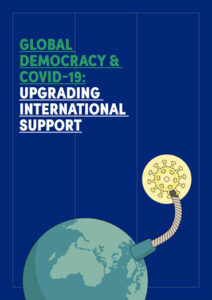 First Draft News tracked the efforts of fact checking organizations over the first six months of 2020, noting a rapid increase in fact checks between January and March. Common points of misinformation included conspiracies about the virus’ origins, pseudoscientific home remedies, false claims that certain communities were responsible for high rates of transmission, and more.
First Draft News tracked the efforts of fact checking organizations over the first six months of 2020, noting a rapid increase in fact checks between January and March. Common points of misinformation included conspiracies about the virus’ origins, pseudoscientific home remedies, false claims that certain communities were responsible for high rates of transmission, and more.
Stanford University’s Cyber Policy Center at the Freeman Spogli Institute hosts a series of events covering “The Rise of Digital Authoritarianism: China, AI, and Human Rights” between September 29 and October 9. Speakers include Glenn Tiffert, Research Fellow with the Hoover Institution, who authored “Compromising the Knowledge Economy” for the Forum’s Sharp Power and Democratic Resilience paper series.
A new report from the Center for Strategic and International Studies analyzes how Chinese economic and technological investment in the Western Balkans has incentivized the Serbian government to support the CCP’s foreign policy objectives, especially considering Beijing’s financial and medical support in the country.







